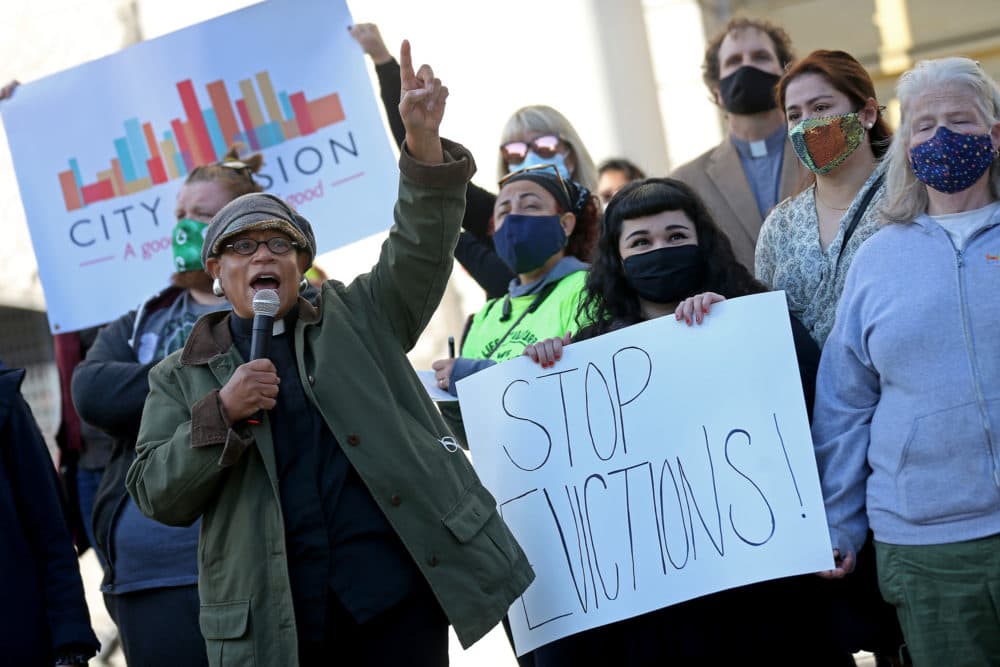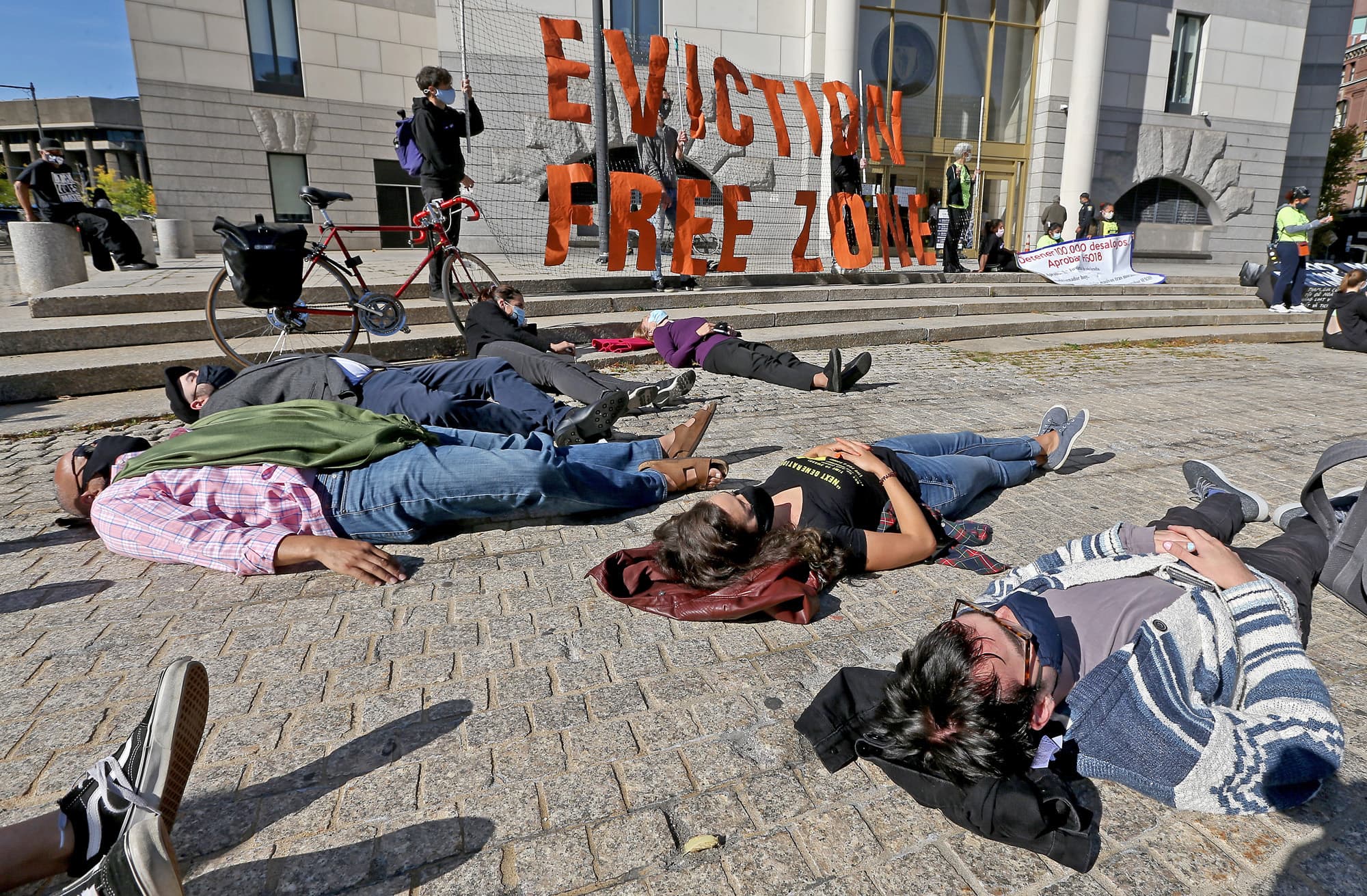Advertisement
Commentary
Evictions Feed The Pandemic

“My landlord is in my apartment right now, and he is refusing to wear a mask!” said my client, who called in panic last week. “He opened the deadbolt. I called the police and they won’t come. They said it’s a ‘civil issue.’”
Through tears, she told me about her teenage son’s congenital heart condition. A single Latinx mother of two, she read that Black and Latinx children make up nearly 80% of COVID-19 deaths among children in the U.S. She worked two jobs but lost one during the pandemic. When she fell behind on rent, her landlord tried to illegally evict her, first shutting off utilities, then locking an emergency exit and finally entering her home without her permission.
Her story is not unique.
Now that Gov. Charlie Baker’s eviction moratorium has expired, residents in 100,000 households across the commonwealth face the risk of eviction unless the legislature or the governor take action. As of mid-November, evictions had already reached pre-pandemic levels while COVID-19 cases rapidly surge to rates that are 70% higher than last April. The clock now ticks down to the expiration of the CDC eviction moratorium on Dec. 31, which provides some protection, although less than Baker’s original moratorium. As doctors and organizers in communities most affected by COVID-19 outbreaks, we have a prescription for Massachusetts lawmakers. Pass the Guaranteed Housing Stability Act to save lives and prevent the uncontrolled spread of COVID-19 across our state.

Housing stability is the foundation of an effective COVID-19 response. Without housing, the most basic and effective interventions — staying home when sick and maintaining social distance — become impossible. Overcrowded living conditions allow the virus to spread quickly within a household before the first patient has even developed symptoms, like a spark catching dry tinder.
Homelessness acts like a strong wind, spreading the virus as families are forced to move between staying with relatives, friends or in shelters. Evictions have led to over 433,700 COVID-19 cases and 10,700 additional deaths nationally since the beginning of the pandemic. An eviction crisis on such a scale already represents an enormous public health emergency. But in the midst of the COVID-19 pandemic, eviction could equal death.
My client, like tens of thousands of families across the commonwealth, faces the coming winter with trepidation that she may not be able to keep her children heathy and safe.
Passing legislation like the Guaranteed Housing Stability Act is crucial to stopping the spread of COVID-19. The legislation would protect both renters and small landlords and includes a housing stability and recovery fund to address months of accrued rent and mortgage payments. The bill began the last legislative session with overwhelming support but then was crushed by the powerful real estate lobby.
Individual cities also have the power to protect families from eviction, and Somerville’s Moratorium on Eviction Enforcement is an excellent model to replicate. For now, we urge all concerned residents to call on their state legislators to pass eviction protections in the state budget, and to pass comprehensive housing stability legislation in the coming year. We must also urge our city counselors and mayors to ensure all families are protected from losing their homes during the COVID-19 pandemic and recovery period.
My client, like tens of thousands of families across the commonwealth, faces the coming winter with trepidation that she may not be able to keep her children healthy and safe. An overwhelming majority of Massachusetts residents support increased restrictions, including closing non-essential businesses and in-person dining. As Baker directs hospitals to free up ventilators for the second surge, he must take real and comprehensive measures to slow spread of the virus. Such restrictions must come with protections for the communities who have borne the brunt of the pandemic and the associated economic crisis. We must ensure that essential workers have economic relief, access to rapid testing and treatment, paid sick leave so they can stay home when they are sick — and a home to stay in.
Lady Lawrence Carty is co-founder of Housing=Health. Lara Jirmanus, M.D., MPH, is a family physician at Cambridge Health Alliance and a fellow at FXB Center for Health and Human Rights at Harvard University. Noel Sanders is a community organizer at Boston Community Health Initiative. Jessica Landau-Taylor is a medical student at Boston University School of Medicine.